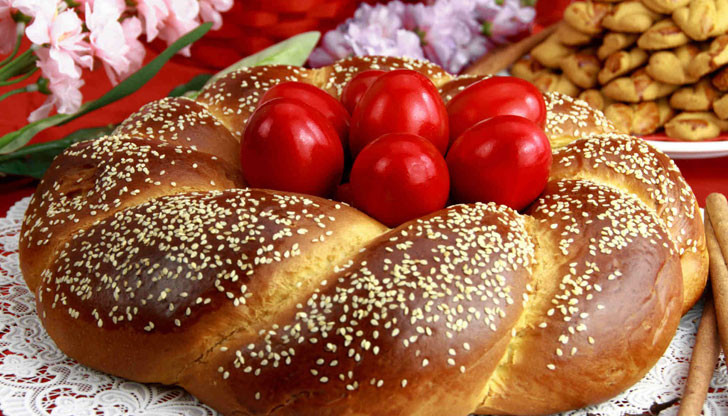Tradition says that Easter eggs must be painted on Maundy Thursday by the oldest woman in the family. Wealthier households would dye 500-600 eggs – for all members of the family, for relatives and guests, for paupers and for travelers. Dyes made of different plants were used to paint the eggs: the red – from oregano, the green – from nettles, the orange – from sumac, yellow – from walnut leaves or apple rinds.
The first egg is always painted red. Why?
“On the one hand eggs are the first animal food eaten after the long fast. The egg is seen as a Christian symbol of the tomb of Jesus Christ which his disciples found empty after the resurrection, and also, in a more general sense, a symbol of eternal life and spiritual salvation,” explains Assoc. Prof. Iskra Baeva from the Bulgarian Academy of Sciences’Institute of Ethnology and Folklore Studies. “On the other hand the colour red, which is seen by theologians as the symbol of the spilt blood of the Saviour, in traditional culture means life, energy, life force, while warding off all things evil or dangerous.”

The first egg painted red is used to rub the cheeks of children, girls and young brides so they shall be healthy and protected from all evil. It is placed in front of the family icon and kept through the whole year for health and prosperity. On Easter day red eggs are taken to church to be placed in front of the icons.
Decorated eggs had a special meaning. They are not supposed to be eaten and are only given to the people we love most who treasure them as a precious keepsake.
Find out more about the various techniques of decorating Easter eggs in Radio Bulgaria’s Ancient dyeing egg techniques survive today.
Editing by Elena Karkalanova
They are called the “awakeners/enlighteners” of the nations because they awaken the Bulgarian spirit and the sense of national pride. They kindle the spark of self-awareness and community belonging, instil faith, drive away discouragement in order to..
Saint Petka was born in the XI century in the town of Epibat, on the Sea of Marmara, not far from Constantinople, in a rich Bulgarian family, we learn from the saint's biography. She led a pious life, following Christ's command of love and mercy to..
Today we recall the Independence Anthem, created on the very day Bulgaria's independence was solemnly announced in Veliko Tarnovo. The whole country is celebrating, and in our Black Sea city Burgas, this marching song is being played for the first time...

+359 2 9336 661
